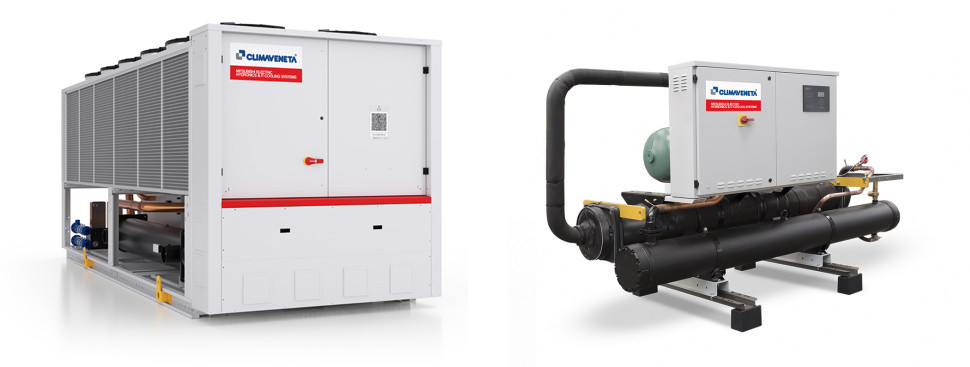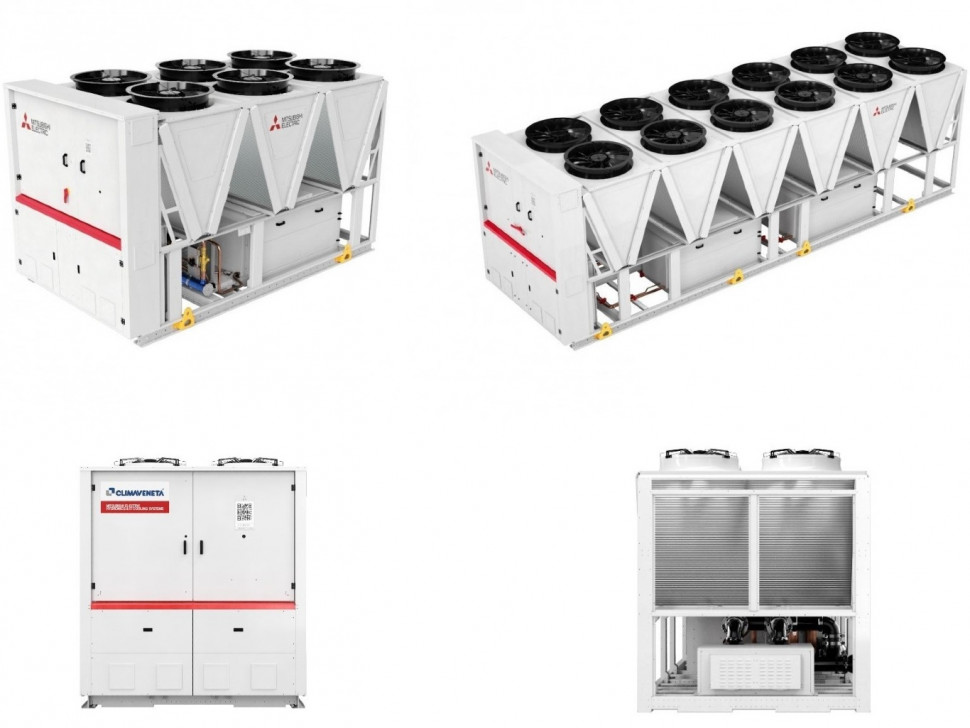Maximizing Efficiency: The Power of Polyvalent Heat Pumps in Meeting Diverse Load Demands

Strong 8k brings an ultra-HD IPTV experience to your living room and your pocket.
By 2050, the global cooling sector is projected to consume 37% more electricity than today, making energy-efficient solutions not just desirable, but critical. Enter polyvalent heat pumps - a technological marvel transforming how we approach heating and cooling across diverse industries.
Understanding Polyvalent Heat Pumps: A Technological Revolution
A heat pump is no longer just a simple heating or cooling device. Polyvalent heat pumps represent the pinnacle of HVAC innovation, offering unprecedented flexibility and efficiency. Unlike traditional systems that specialize in either heating or cooling, these advanced heat pumps can simultaneously provide both, creating a dynamic energy management solution.
Key Characteristics of Polyvalent Heat Pumps
Adaptive Performance: Heat pumps in polyvalent systems can seamlessly switch between hot water, chilled water, or both based on real-time demand.
Energy Recovery: These heat pumps capture and repurpose heat from the cooling process, establishing a closed-loop of efficiency that traditional systems cannot match.
Versatile Applications: From commercial buildings to healthcare facilities, heat pumps are revolutionizing energy management across multiple sectors.
The Economic and Environmental Imperative
Over 95% of chillers waste 5-30% of electricity due to inefficiencies. Polyvalent heat pumps directly address this challenge, offering remarkable benefits:
Up to 30% energy cost savings
Simultaneous heating and cooling capabilities
Reduced equipment footprint
Higher efficiency: 0.55-0.60 kW/ton
India's Energy Challenge and Heat Pump Solutions
India faces a critical energy demand crisis, with projected massive growth in cooling requirements. With urbanization accelerating and temperatures risiting, the nation faces an unprecedented surge in cooling demands.
Studies suggest that by 2030, India’s cooling energy requirements will quadruple, putting immense pressure on the existing power infrastructure. India Cooling Action Plan, launched as a response to this looming crises, sets ambitious targets for reducing cooling energy consumption while ensuring thermal comfort for all.
In this challenge, polyvalent heat pumps are sophisticated enough to align perfectly with India’s dual objectives of energy efficiency and sustainability. Unlike traditional cooling systems that strain the power grid during peak hours, polyvalent heat pumps optimize energy usage through their innovative heat recovery capabilities.
Technological Advancements in Heat Pump Design
Modern heat pumps are far more sophisticated than their predecessors, incorporating cutting-edge control systems and smart technologies. Advanced control systems enable these polyvalent heat pumps to:
Adapt to varying load demands
Optimize energy consumption in real-time
Integrate seamlessly with renewable energy sources
Minimize greenhouse gas emissions
What sets modern polyvalent systems apart is the ability to learn and adapt to the usage patterns, predictivel adjusting their peration to maintain optimal efficiency.
Refrigerant Innovations
The latest heat pumps incorporate low-Global Warming Potential (GWP) refrigerants, further enhancing their environmental credentials. This new refrigerants not ony reduce environmental impact but also enhance system efficiency, through careful engineering and innovative design, manufacturers have ensured that these eco-friendly refrigerants maintain, and in some cases exceed, the performance levels of the traditional options.
Practical Applications Across Industries
Polyvalent heat pumps demonstrate remarkable versatility:
Commercial Buildings: Efficient temperature management with reduced operational costs
Healthcare Facilities: Precise climate control with energy efficiency
Hospitality Industry: Flexible solutions for varying occupancy and comfort requirements
Industrial Processes: Integrated heating and cooling with minimal energy waste
Performance Metrics That Matter
Facilities implementing polyvalent heat pumps have reported:
15% increase in operational efficiency during high-demand periods
Annual energy cost reductions up to 25%
Significant reduction in carbon footprint
The Future of Heat Pump Technology
As we move towards 2030 and beyond, heat pumps are positioned to play a crucial role in sustainable infrastructure. The global shift towards renewable energy and stringent environmental regulations makes polyvalent heat pumps not just an option, but a necessity.
Technological Integration
Future heat pumps will likely feature:
Artificial intelligence-driven load management
Enhanced integration with smart building systems
More advanced heat recovery mechanisms
Improved compatibility with distributed energy resources
Economic and Environmental Impact
By choosing polyvalent heat pumps, organizations can:
Reduce operational expenses
Minimize environmental impact
Enhance building performance
Contribute to global sustainability goals
Global Perspective
The adoption of advanced heat pumps is accelerating worldwide. European and North American markets are leading the transition, driven by regulatory pressures and a commitment to renewable energy sources.
Conclusion: A Sustainable Future with Heat Pumps
Polyvalent heat pumps represent more than technological innovation - they symbolize a paradigm shift in how we conceptualize energy management. As industries worldwide seek efficient, sustainable solutions, these advanced heat pumps stand at the forefront of technological evolution.
For businesses and institutions looking to optimize energy consumption, reduce costs, and contribute to a greener future, polyvalent heat pumps offer an unparalleled solution.
Disclaimer: Actual performance may vary based on specific installation requirements and environmental conditions.
Note: IndiBlogHub features both user-submitted and editorial content. We do not verify third-party contributions. Read our Disclaimer and Privacy Policyfor details.







